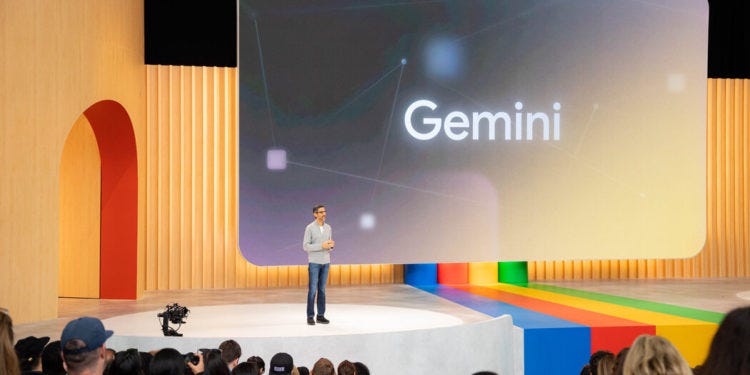Google Unveils A.I. Agent That Can Use Websites on Its Own
Today, chatbots can answer questions, write poems and generate images. In the future, they could also autonomously perform tasks like online shopping and work with tools like spreadsheets.
Today, chatbots can answer questions, write poems and generate images. In the future, they could also autonomously perform tasks like online shopping and work with tools like spreadsheets.
Google on Wednesday unveiled a prototype of this technology, which artificial intelligence researchers call an A.I. agent.
Google is among the many tech companies building A.I. agents. Various A.I. start-ups, including OpenAI and Anthropic, have unveiled similar prototypes that can use software apps, websites and other online tools.
Google’s new prototype, called Mariner, is based on Gemini 2.0, which the company also unveiled on Wednesday. Gemini is the core technology that underpins many of the company’s A.I. products and research experiments. Versions of the system will power the company’s chatbot of the same name and A.I. Overviews, a Google search tool that directly answers user questions.
“We’re basically allowing users to type requests into their web browser and have Mariner take actions on their behalf,” Jaclyn Konzelmann, a Google project manager, said in an interview with The New York Times.
Gemini is what A.I researchers call a neural network — a mathematical system that can learn skills by analyzing enormous amounts of data. By recognizing patterns in articles and books culled from across the internet, for instance, a neural network can learn to generate text on its own.
The latest version of Gemini learns from a wide range of data, from text to images to sounds. That might include images showing how people use spreadsheets, shopping sites and other online services. Drawing on what Gemini has learned, Mariner can use similar services on behalf of computer users.
“It can understand that it needs to press a button to make something happen,” Demis Hassabis, who oversees Google’s core A.I. lab, said in an interview with The Times. “It can take action in the world.”
Mariner is designed to be used “with a human in the loop,” Ms. Konzelmann said. For instance, it can fill a virtual shopping cart with groceries if a user is in an active browser tab, but it will not actually buy the groceries. The user must make the purchase.
Sundar Pichai, Google’s chief executive, said in a blog post that the developments “bring us closer to our vision of a universal assistant.”
The project was developed as an extension for Google’s popular web browser, Chrome, making it an important platform for the company’s future A.I. ambitions. But those plans could face a setback. The Justice Department has asked a federal judge to force Google to sell or spin off Chrome after a landmark ruling that the company’s search engine is an illegal monopoly.
There are other challenges as well. Ms. Konzelmann acknowledged that, like other chatbots, Mariner makes mistakes. Because such systems operate according to patterns found in vast amounts of data, they sometimes go awry. The mistakes that chatbots make when generating text sometimes go unnoticed, but errors are more problematic when systems are trying to use websites and take other actions.
“Is it always accurate? Not yet,” Ms. Konzelmann said. “It is still an experimental technology.”
Google is sharing Mariner with a small number of testers outside the company but has not yet shared plans for a wider release.
On Wednesday, the company also showed off a new version of Project Astra, a smartphone digital assistant that responds to images and text as well as verbal commands. Like technology unveiled by OpenAI earlier this year, Astra is a more powerful version of a digital assistant like Apple’s Siri.
It also is not yet available to the general public.
The post Google Unveils A.I. Agent That Can Use Websites on Its Own appeared first on New York Times.
Happy Holidays from the Art of Liberty Foundation!
We Goofed! Our discount code for 20% didn’t work on December 8th so we are extending the 20% discount until midnight on Thursday, December 12th!
Celebrate the season with special discounts:
20% off from December 5th-12th with the code Liberty20
15% off from December 13th-16th with the code Liberty15
10% off from December 17th until Christmas with the code Liberty10
Shop for unique books and gifts now at Government-Scam.com/store and make this holiday season extra special!







Somebody make them stop before they destroy what it means to be human. Feels like we are on the highway to hell…..and we have no choice in the matter. I don’t want an AI agent.
Exploiting the laziness of the sheeple